Are Essential Oils Medicinal Plants
Essential oils have grown in popularity, known for their health benefits and therapeutic properties. But what are essential oils and how are they extracted? Explore their uses, like aromatherapy, topical application, and ingestion, as well as their benefits, such as stress relief, better sleep, and immune support. Be aware of risks like skin irritation and toxicity. Consider if essential oils are medicinal plants, comparing their similarities and differences. Dive in and learn more about the world of essential oils.
Key Takeaways:
What Are Essential Oils?
Essential oils are natural aromatic compounds extracted from plants through various methods, such as distillation or cold pressing. These oils capture the essence of the plant’s fragrance and contain potent compounds that contribute to their therapeutic properties.
These plant-derived oils are rich in bioactive compounds like terpenes, phenolics, and esters, each with unique chemical structures and properties that offer a wide range of health benefits.
Extraction processes play a crucial role in preserving the integrity of these compounds, with methods like steam distillation, solvent extraction, and expression ensuring the purity and potency of the oils.
Essential oils are prized for their versatile applications, from aromatherapy and skincare to natural remedies for stress relief, immunity support, and overall well-being.
How Are Essential Oils Extracted?
The extraction of essential oils involves methods like steam distillation, solvent extraction, or cold pressing, depending on the plant source and desired outcome. These methods help in obtaining the chemical compositions and volatile compounds present in the plants.
Steam distillation is a popular method for extracting essential oils from aromatic plants. It involves using steam to separate the volatile compounds from the plant material, capturing them in a condensed form.
Solvent extraction, on the other hand, utilizes chemical solvents like hexane to extract the oils.
Cold pressing, commonly used for citrus fruits, involves mechanically squeezing the peel to release the essential oils.
Each extraction method impacts the chemical composition of the oils. Factors such as temperature, pressure, and duration of extraction can influence the final product’s aroma, color, and therapeutic properties.
Preserving the natural properties of the plant extracts is crucial to maintain their efficacy and ensure the benefits they offer are retained.
What Are the Uses of Essential Oils?
Essential oils find applications in diverse industries, including the pharmaceutical and cosmetic sectors, due to their therapeutic benefits and aromatic properties. These oils are utilized in aromatherapy, topical applications, and even ingestion for various health and wellness purposes.
The versatility of essential oils goes beyond their pleasant scents; in pharmaceuticals, they are integrated into medications for their healing properties, acting as natural remedies for ailments. In the cosmetic industry, these oils are incorporated into skincare products, providing nourishment and rejuvenation to the skin. Through their diverse applications, essential oils continue to establish themselves as valuable components in promoting overall well-being.
Aromatherapy
Aromatherapy utilizes the aromatic scents of essential oils to promote relaxation, reduce stress, and enhance overall well-being.
The effects of varied fragrances are well-documented in aromatherapy, with each scent having its unique impact on the mind and body. For instance, lavender is known for its calming properties, ideal for soothing nerves and promoting sleep. On the other hand, citrus scents like lemon and orange can uplift the spirit and increase energy levels due to their refreshing qualities. Rosemary is often associated with improved focus and concentration, making it a popular choice for enhancing productivity. The therapeutic potential of aromatic oils extends beyond mere pleasant scents, as these oils can trigger physiological responses that benefit overall well-being.
Topical Application
Topical application of essential oils involves direct absorption through the skin, allowing for therapeutic benefits such as pain relief, skin rejuvenation, and emotional support. The quality of oils used in topical applications significantly influences the effectiveness of the treatment.
When selecting essential oils for topical use, it is essential to consider the top notes of the oil, as these can determine its therapeutic properties. For example, peppermint oil with its invigorating and cooling top notes is often used for pain relief and mental clarity.
High-quality essential oils are crucial for maximizing the benefits of topical application. Purity, sourcing, and extraction methods all play a vital role in ensuring the efficacy and safety of the oils when applied to the skin.
Ingestion
Ingesting essential oils involves consuming these potent compounds for various health benefits, but it requires caution due to their concentration and extraction processes. The ingestion of oils should be done under expert guidance to avoid potential adverse effects.
In terms of the health benefits, essential oils are often rich in bioactive compounds such as terpenes, phenolics, and terpenoids. These compounds possess antioxidant, anti-inflammatory, and antimicrobial properties that can support overall well-being.
The extraction process of essential oils is crucial to preserve their therapeutic properties. Methods like steam distillation or cold pressing are employed to maintain the purity and potency of the oils.
Despite their benefits, ingesting essential oils can be risky if not used correctly. Internal consumption of concentrated oils can lead to adverse reactions like digestive issues and toxicity, underscoring the importance of seeking professional advice before oral ingestion.
What Are the Benefits of Essential Oils?
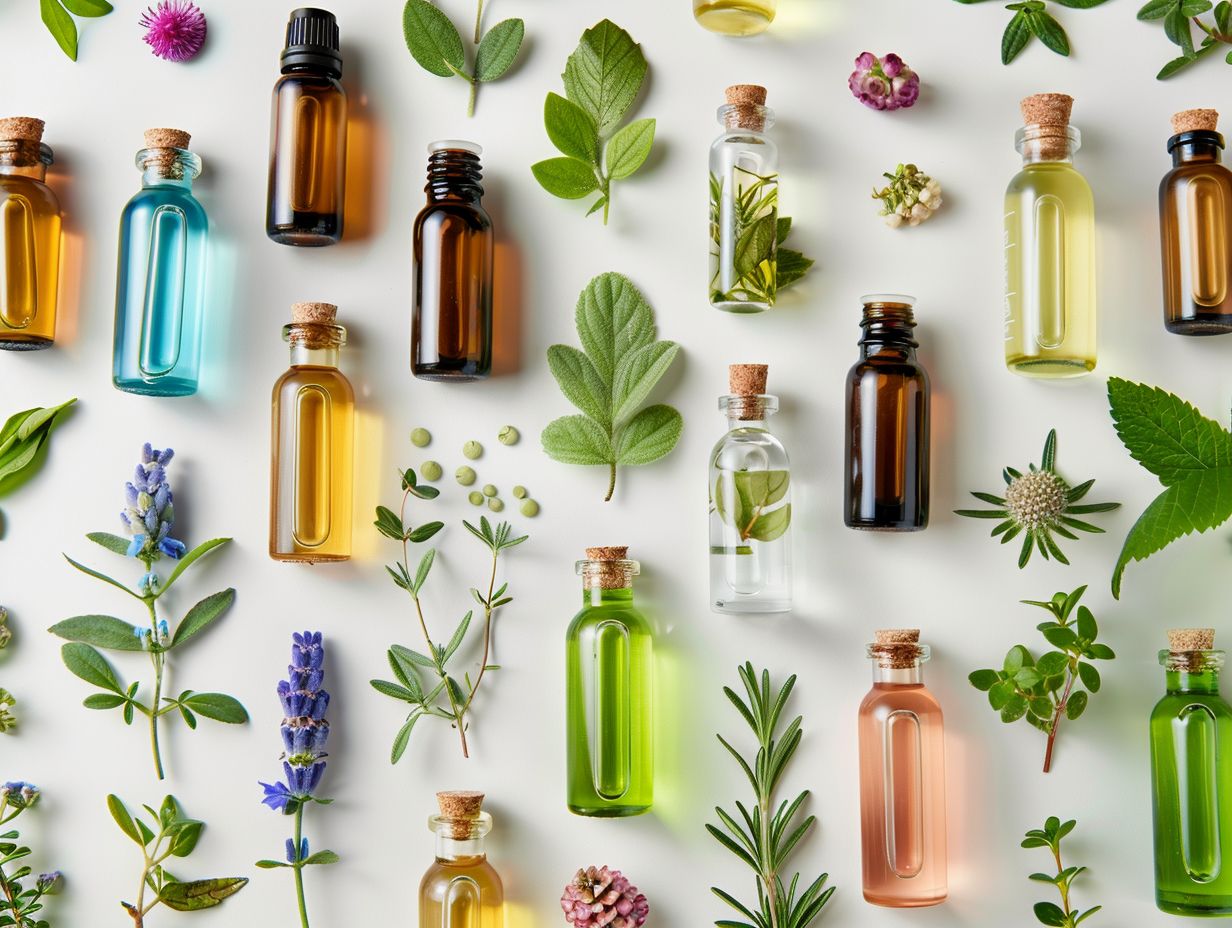
One of the key advantages of essential oils is their ability to alleviate stress and anxiety, providing a natural and effective way to unwind after a long day. The calming scents of oils like lavender and chamomile can promote relaxation and mental clarity, helping to reduce feelings of tension and promote a sense of calm.
Essential oils can also aid in boosting immunity, as certain oils possess antimicrobial properties that can help fight off pathogens and strengthen the body’s defense mechanisms. Research has shown that oils such as eucalyptus and tea tree oil can help prevent infections and support overall immune function.
Relieves Stress and Anxiety
Essential oils are known for their calming and stress-relieving properties, making them effective in alleviating symptoms of anxiety and promoting relaxation. The therapeutic benefits of these oils in reducing stress levels have been acknowledged in various studies.
Research has shown that the aroma of certain essential oils can positively impact the limbic system of the brain, which is responsible for controlling emotions and behaviors. Specifically, oils like lavender, chamomile, and bergamot have been found to reduce cortisol levels, the hormone associated with stress. These oils can help create a sense of calmness and tranquility, making them a popular choice for individuals seeking natural remedies for stress relief.
Improves Sleep Quality
The use of essential oils from aromatic plants has been linked to improved sleep quality and better sleep patterns. These oils are often incorporated into health supplements or sleep-inducing blends to promote restful and rejuvenating sleep.
Essential oils have been recognized for their ability to calm the mind and body, creating a tranquil environment conducive to sleep. Lavender, known for its soothing properties, is a popular choice for promoting relaxation before bedtime. Oils like chamomile and cedarwood are believed to have sedative effects, helping individuals unwind and drift off to sleep more easily.
Many health supplements harness the power of these natural oils to provide a holistic approach to improving sleep quality. By combining the benefits of various essential oils, these supplements offer a multi-faceted solution to common sleep issues, such as insomnia or restlessness.
Boosts Immune System
Essential oils serve as therapeutic vehicles for supporting the immune system by exhibiting antimicrobial and antioxidant properties. These natural remedies are known for their immune-boosting effects and their ability to combat pathogens effectively.
When essential oils are diffused into the air or applied topically, their antimicrobial properties help in fighting off harmful bacteria and viruses that can compromise the immune system. The antioxidant effects of these oils can reduce oxidative stress in the body, which is crucial for maintaining a strong immune response. Through their diverse chemical compositions, essential oils offer a holistic approach to fortifying the body’s natural defense mechanisms, making them valuable allies in promoting overall health and well-being.
- By supporting the immune system, these oils aid in preventing illnesses and boosting recovery processes.
- Their natural, plant-based origin enhances their compatibility with the body’s own defenses, resulting in minimal side effects and maximum effectiveness.
- Incorporating essential oils into daily routines can not only strengthen immunity but also promote relaxation and reduce stress, which in turn can further bolster the immune system.
Reduces Inflammation
Essential oils containing anti-inflammatory compounds act as effective therapeutic agents in reducing inflammation and addressing associated health issues. These oils derived from medicinal plants have been traditionally used for their anti-inflammatory properties.
For centuries, various cultures around the world have harnessed the power of medicinal plants to create natural remedies to combat inflammation. The use of botanical extracts, such as chamomile, lavender, and tea tree oil, has been well-documented in ancient healing practices. These oils contain potent anti-inflammatory agents that help alleviate pain, swelling, and redness in the body.
Plus their anti-inflammatory benefits, therapeutic oils offer a holistic approach to wellness by promoting relaxation and stress relief. Aromatherapy, which involves inhaling the fragrant molecules of essential oils, can also positively impact mood and emotional well-being, further supporting the body’s natural healing processes.
Alleviates Pain
The fragrance and active ingredients in essential oils contribute to their pain-relieving properties, offering natural alternatives for alleviating various types of pain. These oils are widely used in aromatherapy and topical applications to provide relief from discomfort.
When inhaled, essential oils like lavender, peppermint, and eucalyptus can help relax the mind and body, easing headache and migraine pain. Their calming scents stimulate the brain’s limbic system, which plays a key role in emotions and pain perception.
Plus their aromatic benefits, certain essential oils contain compounds like menthol and camphor that have analgesic and anti-inflammatory properties, effectively reducing muscle aches and joint pain when applied topically.
These natural remedies offer a gentle yet potent approach to pain management, catering to those seeking holistic solutions for their discomfort.
What Are the Risks of Using Essential Oils?
While essential oils offer numerous benefits, there are risks associated with their use, including skin irritation and allergic reactions. It is crucial to be aware of these potential adverse effects to ensure safe and proper usage of essential oils.
Essential oils are highly concentrated plant extracts that can cause skin irritation when applied directly to the skin. Allergic reactions may occur due to individual sensitivities to certain oils. It is recommended to perform a patch test by diluting the essential oil in a carrier oil and applying a small amount to the skin before general use.
Regularly skin irritation and redness, discontinue use immediately and consult a dermatologist or healthcare professional for guidance.
Skin Irritation
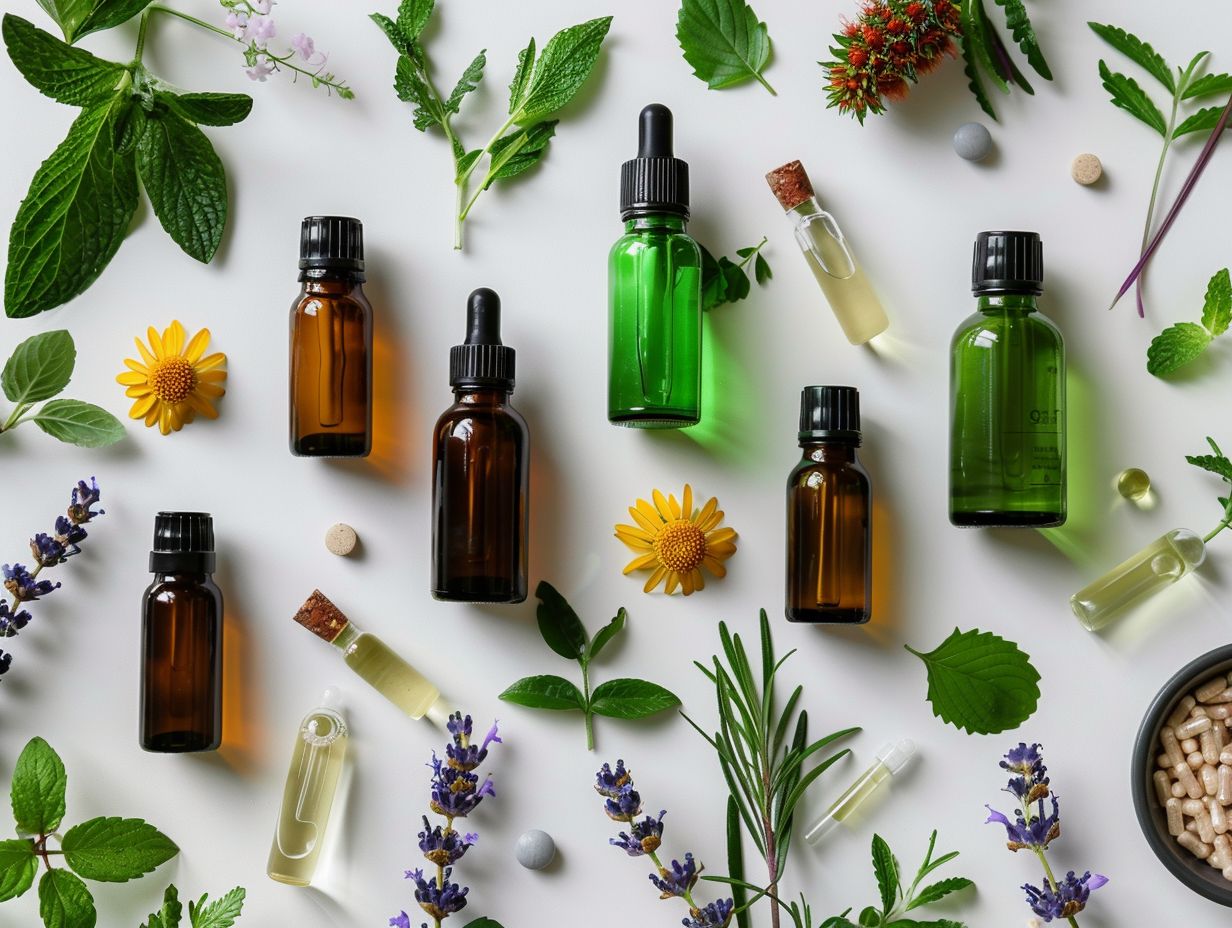
Skin irritation is a common adverse effect of using essential oils, especially when applied undiluted or in high concentrations. Some oils may cause toxic effects on the skin, leading to redness, itching, or inflammation.
It is crucial to understand that essential oils are highly concentrated plant-based extracts that can be potent and may not be suitable for direct application on the skin. For instance, oils such as tea tree, cinnamon bark, and oregano are known to be particularly harsh and can lead to severe irritation if not properly diluted.
Before using any essential oil, it is essential to research its safe dilution ratios and always perform a patch test on a small area of skin to check for any adverse reactions. Diluting essential oils in carrier oils like coconut oil or jojoba oil can help reduce the risk of skin irritation.
Allergic Reactions
Allergic reactions to essential oils can occur in individuals sensitive to specific compounds present in the oils. It is essential to be cautious, especially when using oils containing synthetic antioxidants that may trigger adverse reactions.
When exposed to essential oils, individuals with allergies may experience symptoms such as skin irritation, respiratory issues, or even headaches. The presence of synthetic antioxidants in some oils can exacerbate these reactions due to their potential to disrupt the body’s immune response.
Identifying the ingredients in your oils is crucial for managing allergic reactions proactively. In case of an allergic response, swift action is vital; antihistamines or seeking medical attention can help alleviate symptoms and prevent any severe consequences. Antioxidant effects play a vital role in these reactions by either enhancing or triggering them, so it’s important to stay informed and cautious.
Toxicity
The toxicity of essential oils can manifest when these potent substances are ingested in large quantities or applied without proper dilution. Understanding the antioxidant power and abilities of oils is crucial to prevent toxic reactions in individuals.
Antioxidants, such as those found in essential oils, play a vital role in neutralizing harmful free radicals in the body that can lead to cell damage and oxidative stress. By counteracting these free radicals, antioxidants help reduce the risk of toxicity by promoting overall cellular health.
Proper dilution methods, when using essential oils for aromatherapy or topical application, are essential to harness the beneficial properties of the oils while minimizing the risk of adverse effects. Diluting essential oils in carrier oils or water helps ensure a safe concentration that delivers therapeutic benefits without overwhelming the body.
Are Essential Oils Considered Medicinal Plants?
Essential oils are often considered as derivatives of medicinal plants due to their therapeutic benefits and natural healing properties. These oils embody the essence of various plants and provide innovative therapeutic solutions for a range of health ailments.
essential oils herbs have been used for centuries to treat various illnesses and promote overall well-being. By harnessing the healing powers of nature, essential oils offer a holistic approach to health and wellness. The unique chemical compositions of these oils make them potent remedies for conditions such as insomnia, headaches, and anxiety.
Whether used aromatically, topically, or internally, essential oils can have profound effects on the body, mind, and spirit. Their versatile applications in aromatherapy and natural medicine continue to expand, gaining recognition in mainstream healthcare practices.
Definition of Medicinal Plants
Medicinal plants are botanical specimens that contain active compounds with healing properties, often utilized in plant extracts like essential oils for natural remedies. These plants play a significant role in traditional medicine and modern healthcare practices.
Since ancient times,
medicinal plants
have been highly esteemed for their therapeutic benefits. The compounds extracted from these plants are renowned for their diverse healing properties, ranging from anti-inflammatory and antimicrobial to analgesic and antioxidant effects. Plant extracts are extensively used in various forms, such as tinctures, teas, and
essential oils
, providing natural solutions for a wide range of health issues. In today’s world, the integration of plant-based remedies in healthcare signifies a return to nature’s wisdom, emphasizing the importance of sustainable and holistic approaches to wellness.
Similarities between Essential Oils and Medicinal Plants
Essential oils and medicinal plants share commonalities in their use as therapeutic agents due to the presence of natural compounds with healing properties. Both sources offer effective solutions derived from the rich biodiversity of plant extracts.
One of the key similarities between essential oils and medicinal plants lies in their ability to harness the power of nature in providing therapeutic benefits. Therapeutic agents found in both essential oils and medicinal plants work synergistically to promote healing and overall well-being. These natural compounds play a vital role in combating various ailments by targeting specific health issues at their root. The incorporation of essential oils and medicinal plants into natural healthcare practices showcases the efficacy of plant-based remedies in fostering a holistic approach towards wellness.
Differences between Essential Oils and Medicinal Plants
While essential oils are derived from medicinal plants, they differ in their extraction methods and application as natural remedies. Essential oils offer distinct health benefits and therapeutic effects compared to the broader spectrum of medicinal plants.
One of the key differences between essential oils and medicinal plants lies in the extraction methods. Essential oils are typically extracted through methods like distillation, cold pressing, or solvent extraction, which concentrate the potent aromatic compounds found in plants. On the other hand, medicinal plants are often consumed in various forms such as teas, tinctures, or powders, utilizing a wider range of plant components.
In terms of medicinal applications, essential oils vs medicine are valued for their concentrated nature, making them potent remedies for various ailments such as stress relief, pain management, and skincare. Their volatile nature allows for quick absorption and direct impact on the body’s systems.
Essential oils boast unique health benefits owing to their specific chemical compositions. For instance, lavender essential oil is renowned for its calming properties, while essential oils peppermint essential oil is favored for its invigorating effects. These targeted benefits make essential oils a popular choice for natural remedies.
Frequently Asked Questions
Are Essential Oils Medicinal Plants?
Yes, some essential oils are derived from medicinal plants and have been used for their therapeutic properties for centuries.
What are Essential Oils?
Essential oils are concentrated extracts from plants that contain the natural fragrance and beneficial compounds of the plant.
Can Essential Oils be Used for Medicinal Purposes?
Yes, certain essential oils have been found to have medicinal properties and can be used for various health concerns.
Which Essential Oils are Considered Medicinal Plants?
Some common examples of essential oils from medicinal plants are lavender, peppermint, eucalyptus, tea tree, and chamomile.
How are Essential Oils Used for Medicinal Purposes?
Essential oils can be used topically, inhaled, or ingested for medicinal purposes. It is important to follow proper dilution and usage guidelines for each specific oil.
Are Essential Oils Safe for Medicinal Use?
While essential oils can have medicinal benefits, it is important to use them safely and as directed. Some oils may have potential side effects or interact with certain medications, so it is best to consult with a healthcare professional before use.

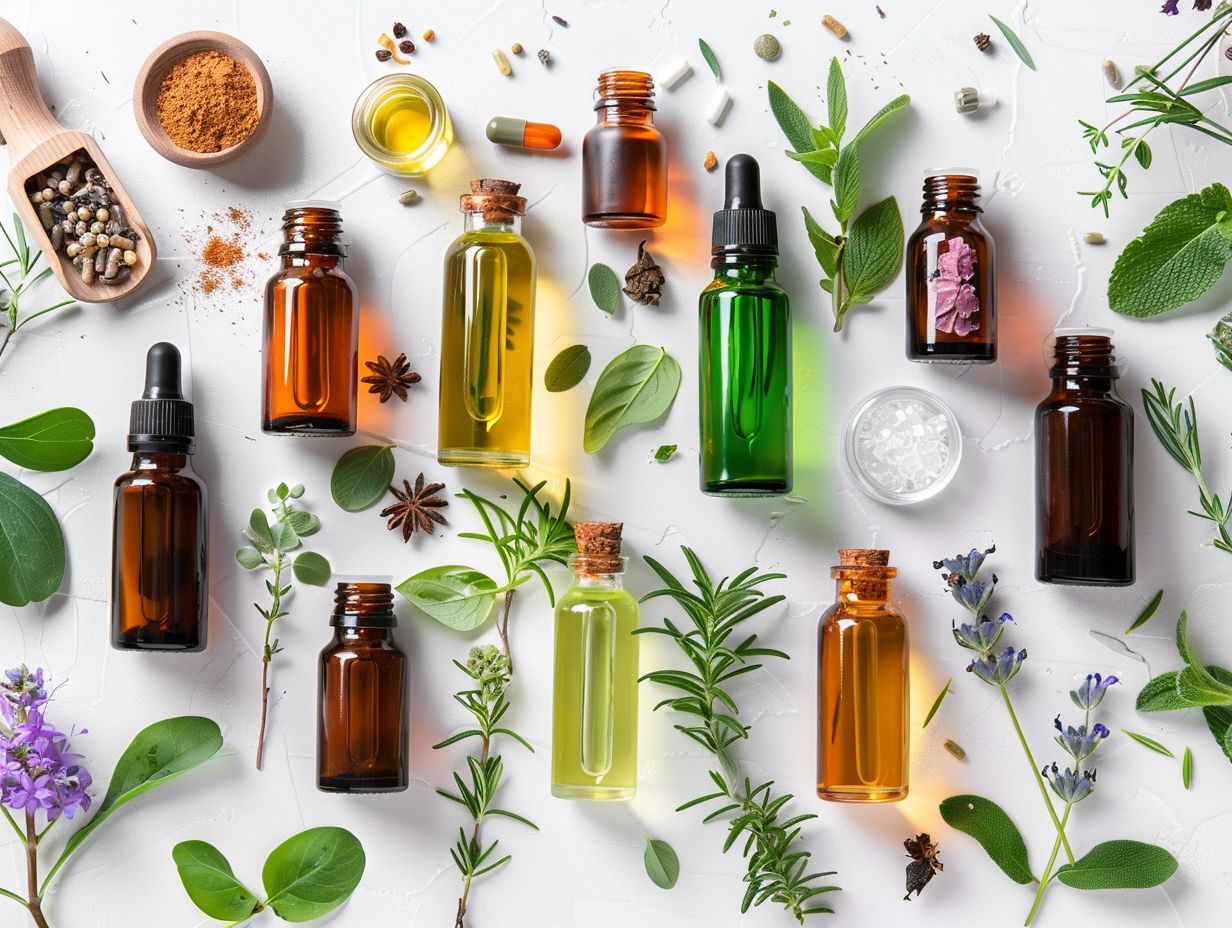
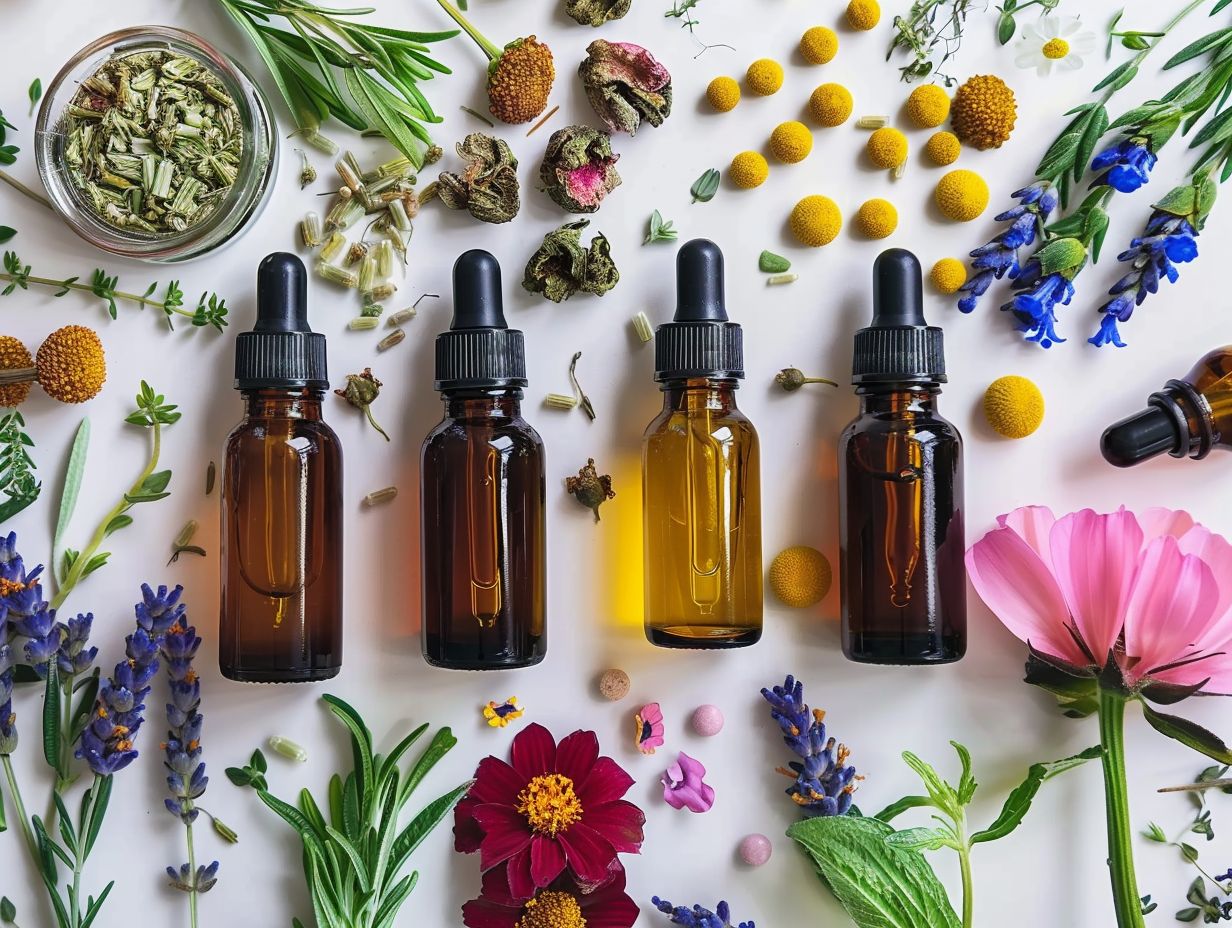

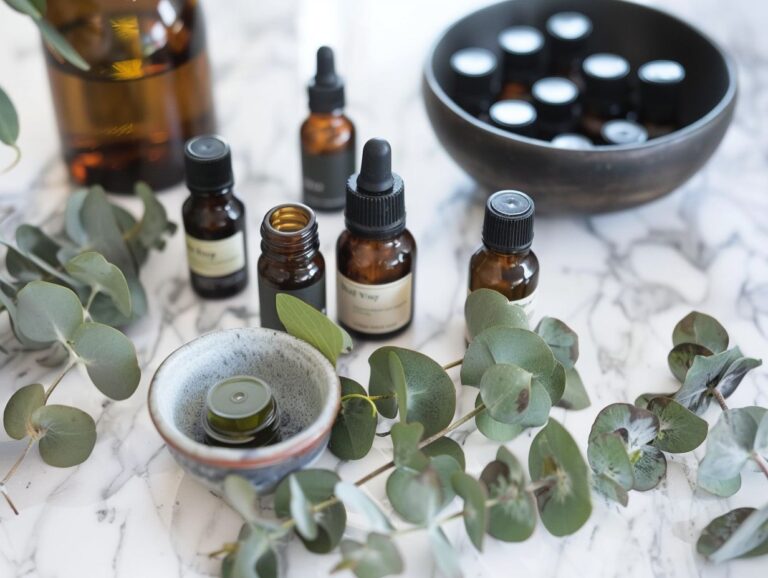

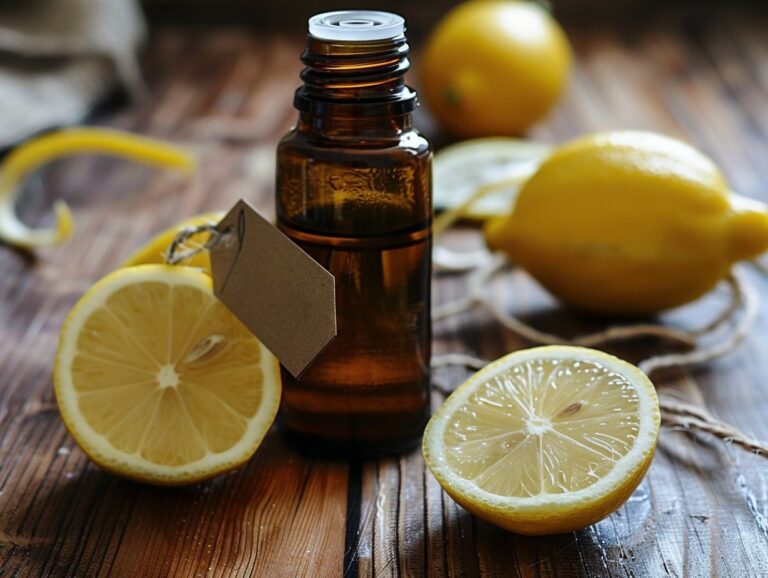
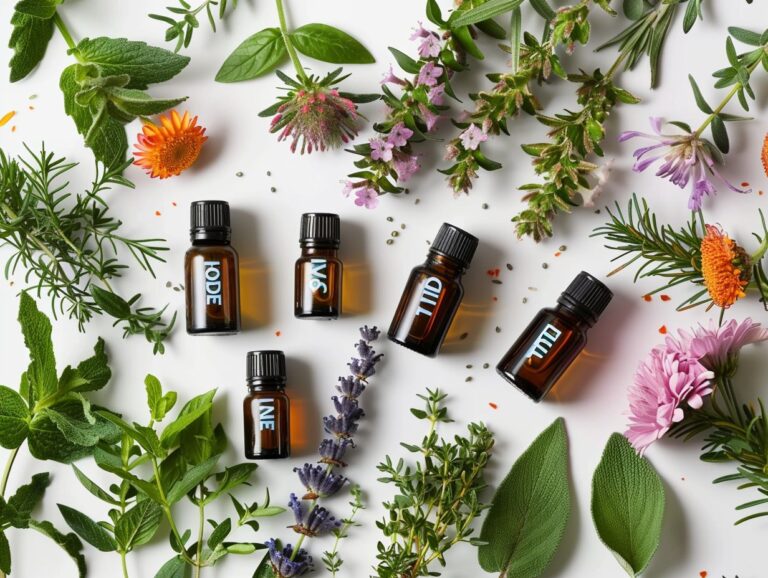

2 Comments